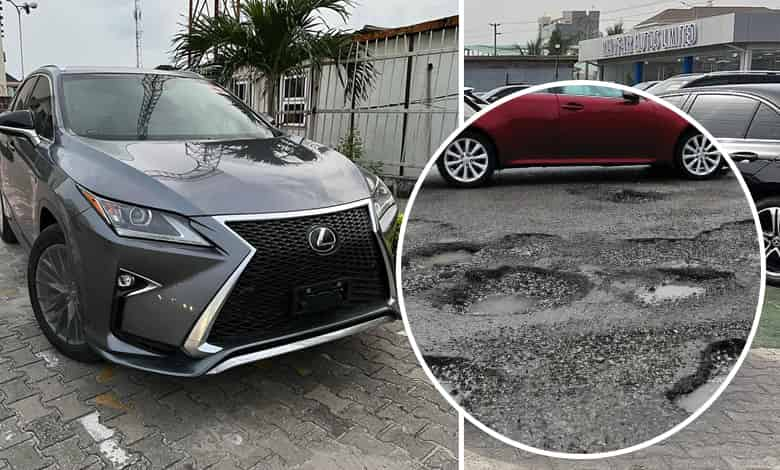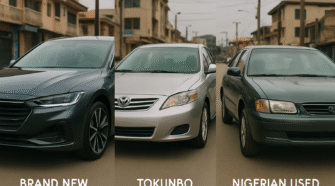

How Roadside Potholes in Nigeria Are Damaging Your Car: Causes and Consequences
One of the most persistent challenges Nigerian car owners face is the issue of roadside potholes, whether on residential streets or major highways. These potholes range from minor cracks to large craters that can severely damage a vehicle’s suspension and other components.
Car owners in Nigeria are often left navigating the streets cautiously, trying to find routes with fewer or less severe potholes. But what exactly causes potholes, and how do they affect your car?
What Causes Potholes?
Potholes form due to regular road use, but the underlying issues are often more complex. In Nigeria, the increasing prevalence of potholes is primarily due to poor-quality construction materials and substandard workmanship during road construction. As a result, roads are not durable enough to withstand traffic over time.
Water plays a significant role in pothole formation. It seeps into the cracks or gaps in the road caused by the weight of passing vehicles. Over time, the soil beneath the pavement becomes saturated, weakening the road structure. With repeated vehicle traffic, the pavement shifts and deteriorates, eventually forming potholes. Without timely repairs, these holes continue to expand.
Additionally, factors such as extreme heat and heavy traffic also contribute to pothole formation. Intense heat can cause the road surface to expand, weakening the pavement and making it prone to cracks. Heavy traffic further compounds the problem, accelerating the wear and tear of already vulnerable road surfaces.
How Potholes Damage Your Car
Potholes can cause a variety of car problems, from minor to severe. Some of the most common types of damage include:
- Tire Damage: When a car tire hits a pothole, it can suffer a puncture or develop a bulge, which may lead to a blowout. Replacing damaged tires can be costly, and ignoring the issue could lead to dangerous driving conditions.
- Wheel Damage: The impact from hitting a pothole can bend or crack the wheel. This often results in unbalanced tires, which can cause steering problems or even a flat tire. In many cases, a damaged wheel must be replaced entirely.
- Suspension and Steering Damage: Potholes can wreak havoc on a car’s suspension and steering system. Drivers may experience alignment issues or difficulty handling the vehicle. Fixing these problems typically requires replacing damaged components and realigning the car.
- Exhaust System Damage: When a car strikes a pothole, the exhaust system can suffer, particularly the catalytic converter, which helps manage emissions. A damaged exhaust system can result in higher emissions and further mechanical issues.
- Undercarriage and Body Damage: The impact from hitting deep potholes can also harm a vehicle’s undercarriage, causing dents, cracks, or damage to vital components like the oil pan or fuel tank.
Conclusion
Potholes are a common sight on Nigerian roads, and unfortunately, poor road maintenance means that the problem is unlikely to disappear anytime soon. A significant portion of vehicle damage in Nigeria can be attributed to bad roads, making it a top concern for car owners.
While there may be no immediate solution to Nigeria’s pothole problem, drivers can minimize damage by being cautious and driving slowly on pothole-riddled roads. Regular vehicle maintenance and tire checks are also essential in preventing major issues down the road.
Categories
- Biography (4)
- Car Reviews (31)
- Car Tips (53)
- Classic Cars (45)
- Net Worth (12)
- Transportation (19)
Recent Posts
Related posts


Top 5 Reliable Car Dealerships in Lagos: Your Ultimate Guide

How to Buy a Tokunbo Car in Nigeria Without Getting Scammed








